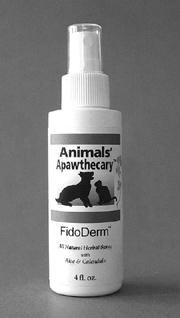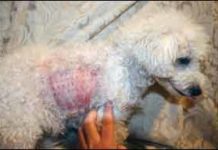Hard Work, Huge Rewards
"I just set eyes on Gracie and I knew." That’s how Mary Ellen Grimaldi describes first seeing the approximately two-year-old Beagle-Shepherd mix at the New York state animal shelter. Not surprisingly, her first impressions held true. “She has been an absolutely wonderful dog,” says Grimaldi. Wonderful, but allergic. Gracie, a mid-size dog with a smooth, short coat, soon began showing signs of allergies. “She was licking her feet constantly, rubbing her face, rolling, generally itchy,” says Grimaldi. “And I didn’t know that licking feet was the typical manifestation of allergies.”
When It Comes to Allergy Tests, Some Dogs Flunk
There are a few different types of tests available that purport to identify the allergens to which a dog is hypersensitive; some of them are helpful, and some are a waste of time and money. Since all of them are commonly referred to as allergy tests
A Canine Allergy Glossary
An Allergen is defined as a substance that causes an allergic reaction. Anything can be an allergen to a hypersensitive individual, even water. The term has meaning only in relation to an individual who is hypersensitive to that substance.
Dog Food Elimination Trials Are Worth The Effort
Allergies can literally cause a dog to tear his hair out, setting acute moist dermatitis (hot spots") into motion and triggering fits of paw-licking and head-shaking (caused by allergy-induced ear inflammation and infection). When this happens
Dog Food for Skin Allergies
If your dog suffers from skin allergies, choosing the right food can make a difference for your dog’s comfort and health. Allergies in dogs are a common concern from pet owners and can cause itchiness, red patches, hair loss, inflammation, and secondary skin infections.
How to Treat Dog Hives at Home
Hives are a common skin reaction in dogs that causes raised, itchy bumps on their skin. Hives can appear suddenly and may range in...
What You Need to Know: Zyrtec for Dogs
Zyrtec is safe for dogs, when used appropriately. Zyrtec, or cetirizine, is an oral medication available as a tablet or a liquid. If your dog reacts to a bug bite or has allergies and itches, your veterinarian may recommend Zyrtec.
Identifying and Treating Staph Infections in Dogs
Symptoms of a superficial staph infection include hair loss and the presence of pustules. It can worsen into a deep staph infection with fever, pain, and crusting skin.
Can Dogs Get Poison Ivy?
Poison ivy can affect our dogs, but luckily most dogs have enough hair that the sap usually does not get down to skin. However, any dogs with condition that leaves them with exposed bare skin are all susceptible to the rash.
Is That a Cyst or a Tumor?
A “cyst” is a capsule that usually has fluid in it, although it can have air as well. “Tumor” is a general term, basically a generic swelling or mass.
Apoquel Quickly Addresses Itchy Skin
A dog who constantly scratches himself due to dermatitis may respond well to Apoquel.
Can Dogs be Allergic to Cats?
Dogs can be allergic to a wide variety of environmental allergens including pollen from trees, weeds, and grasses. This list of allergens includes cat dander.


















